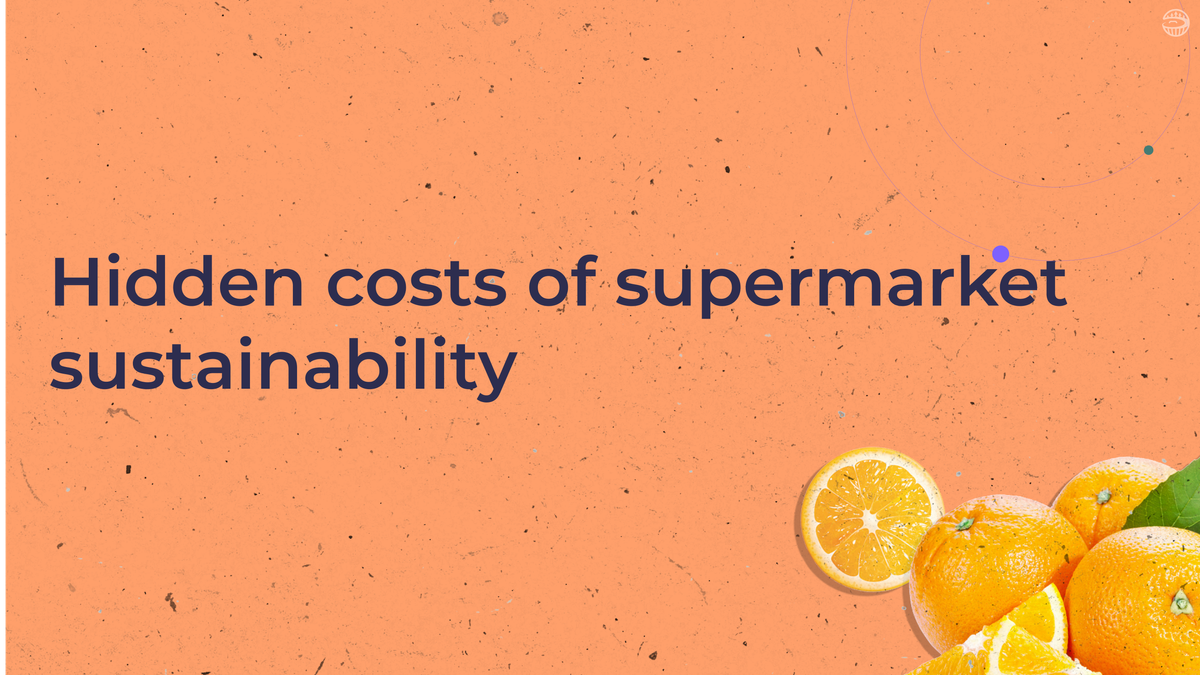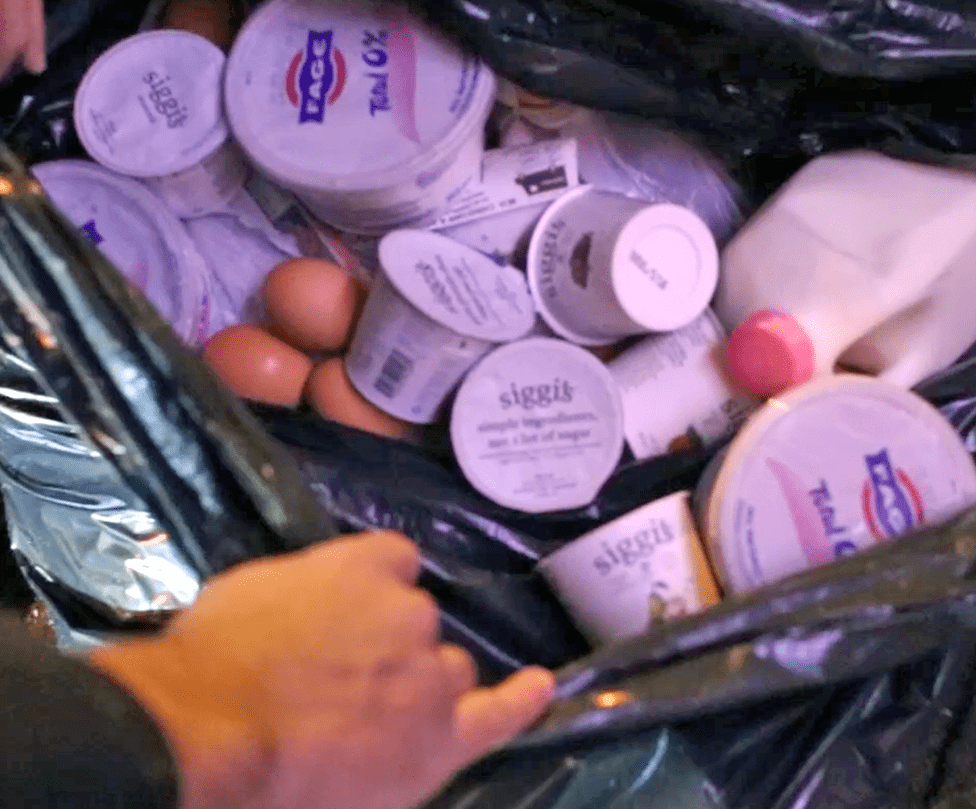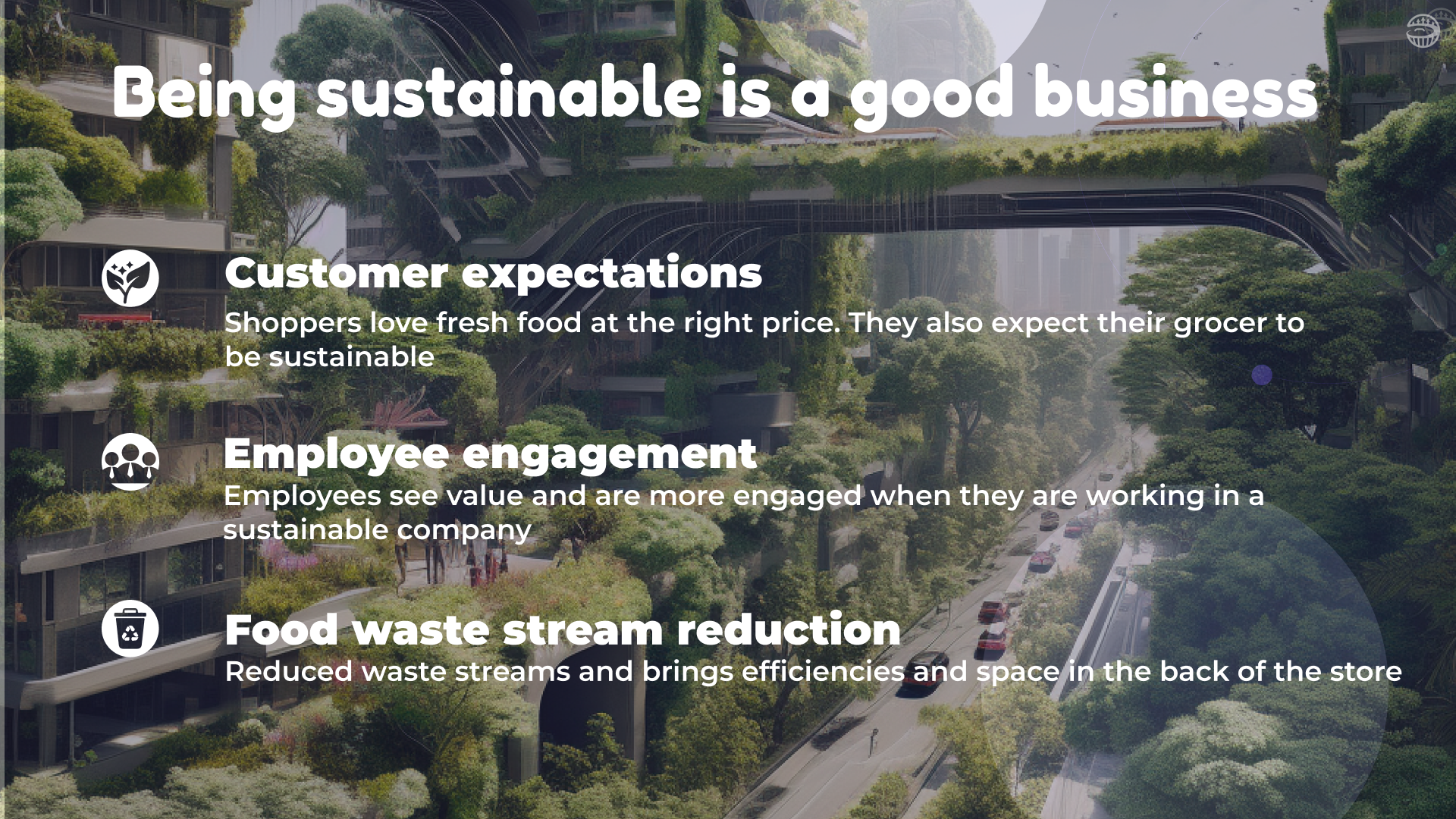The Hidden Impact of Supermarket Food Waste on Our Environment

Supermarkets, with their dazzling aisles and abundance of choices, are central to our daily lives. However, behind this veneer of plenty lies a staggering issue: food waste. The impact of supermarket food waste on the environment is far-reaching, affecting ecosystems, climate change, and the very resources we depend on.
The Scale of the Problem
Picture this: heaps of unsold produce, expired goods, and discarded items relegated to landfill sites. In developed countries alone, supermarkets discard millions of tons of food annually. The sheer volume of wasted food paints a stark reality – one that directly contributes to environmental degradation.

Emissions and Climate Change
Food waste in landfills undergoes anaerobic decomposition, releasing methane, a greenhouse gas significantly more potent than carbon dioxide. The decomposition of wasted food generates methane, contributing to global warming and climate change. The carbon footprint of this waste is staggering, accelerating environmental crises we grapple with today.
Resource Depletion
Producing food requires vast resources: water, land, energy, and labor. When food ends up in the bin, these resources are squandered. For instance, the water used to grow the uneaten food goes to waste, while the land and energy invested in its cultivation become futile.
Loss of Biodiversity
The production of food involves complex ecosystems. As supermarkets discard produce, the biodiversity that sustains our agricultural landscapes suffers. Wasted food disrupts the delicate balance of ecosystems, affecting soil health, pollinators, and biodiversity at large.
Social and Ethical Ramifications
Beyond the environmental impact, food waste has social and ethical implications. While food is wasted, millions worldwide suffer from hunger and food insecurity. The ethical dilemma of discarding food while many go without enough to eat highlights the urgency to address this issue.
Addressing the Crisis
Efforts to combat supermarket food waste are gaining momentum:
- Reducing Waste at the Source: Supermarkets are employing strategies to minimize waste by optimizing inventory management, donating surplus food to charities, and engaging in partnerships to repurpose unsold items.
- Consumer Awareness: Educating consumers about responsible consumption, proper storage, and understanding expiration dates can significantly reduce household food waste.
- Technological Innovations: Technologies like dynamic pricing engines, such as Wasteless, optimize pricing to reduce perishable items' wastage in supermarkets.
The Path Forward
Mitigating supermarket food waste demands a collective effort. Governments, businesses, consumers, and organizations need to collaborate on multiple fronts:
- Implementing policies to incentivize waste reduction
- Investing in infrastructure for food recovery and redistribution
- Supporting innovations that streamline supply chains and reduce waste

Conclusion
The impact of supermarket food waste on the environment cannot be overstated. It's a multifaceted problem that demands immediate attention. Every discarded apple, loaf of bread, or bag of greens carries a substantial environmental cost. Addressing this crisis requires a shift in mindset, policies, and behaviors to create a sustainable and equitable food system.
By acknowledging the detrimental effects of supermarket food waste on the environment and taking concerted action, we can pave the way for a future where abundance coexists with responsible consumption, benefiting not only our planet but also the generations to come.





